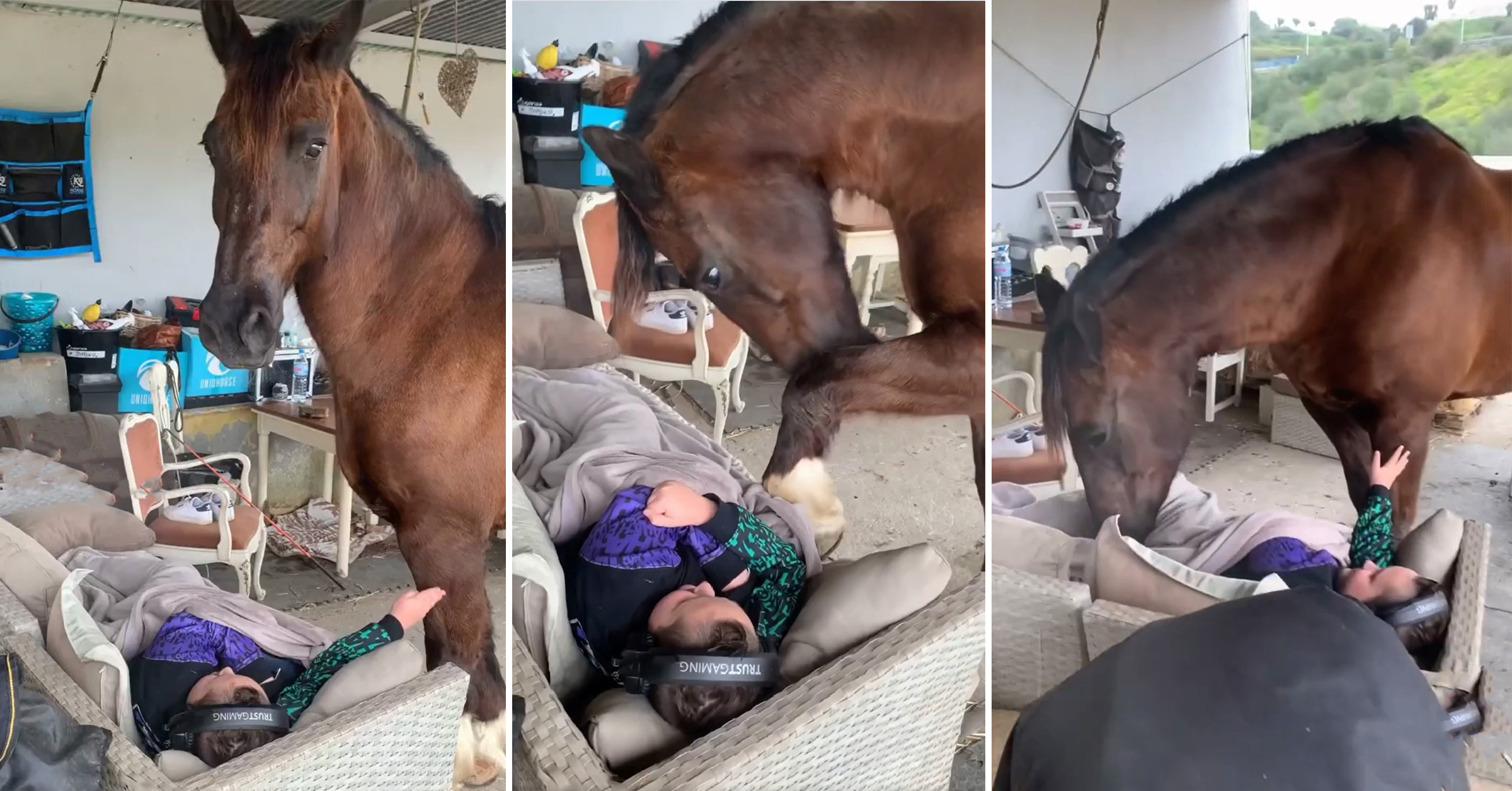Imagine waking up in the morning caressed by your horse, who wants to play. I think this is every child’s dream, especially since horses can be excellent playmates. Play is a fundamental aspect of equine behavior. Desire to play starts in early foal-hood and continues even in adulthood. It is an essential aspect of development, with around 75% of the foal’s time devoted to playing.

But, natural horseplay is rough, and the bite or kick that’s “fun” between horses can cause serious injury to you. So don’t engage your horse in any games that can turn dangerous.

This kid started by rubbing the horse’s hip with his hand. Many horses like to be rubbed on the neck, shoulder, hip, or chest. In addition, some horses enjoy having their heads and ears rubbed. Horses often groom each other on the whither, so this would be an excellent place to try too.

But if your horse does not want to be pet or moves away, do not be upset. Not wanting to be petted does not mean the horse doesn’t like you or that he wouldn’t love to go for a ride with you. Instead, it could mean that you need to inspect yourself, your body language, or your energy. It could also just mean that your horse doesn’t need a rub and would like to be on his own for a bit.

Each horse is different and has preferences about its personal space bubble and the location, amount, and manner in which it likes to be touched. To help determine this, watch the horse’s body language to have insight into its response to your approach and interactions. Generally speaking, if the horse does not like it, he will move away, pin his ears, or raise his head. On the other hand, if he does like it, he may lower his head, move towards you, or tilt his head to the side and look at you.
